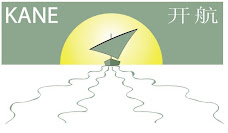Two articles over the past two days have really caught my attention and wonder unlike many in a long time. The first one comes from Canada's Global Mail in which journalist Geoggrey York describes the situation of China securing Alberta's tar sands oil reserves as follows:"Iris Evans was in an upbeat mood when she walked into the Canadian embassy in Beijing last fall to pitch the Alberta oil sands to a high-powered group of Chinese investors. Ms. Evans, the Alberta Minister of Employment, Immigration and Industry, was expecting a smooth ride. But she was quickly ambushed by a hostile question from a Chinese journalist...'You say Chinese investment is welcome, but we feel a negative attitude from the Canadian government,' the reporter told her at a news conference. 'The Canadian media makes a big story about Chinese spies in Canada, and it seems the Canadian government does not trust Chinese people much.' Ms. Evans said she knew nothing about the spy issue. But the skeptical question was one example of China's doubts about Canada as an oil supplier. Beijing wants a relationship of trust with its oil suppliers - and that means it usually prefers to buy from authoritarian regimes in Africa, Latin America or the former Soviet Union, where there are no complications about democracy or minority rights."
The next article came from the Macau Daily Times, where the journalist, Christopher Cottrell, described a small block in Guangzhou known as "Little Africa." Here's an excerpt:
"Barbecued chicken smoke and Senegalese pop music fills one hallway. On another floor, mosquito coil incense and the odour of new leather bean-bags bound for Angola commingle. Welcome to the Tianxiu building, the home of China’s largest African enclave and a microcosm for the billion dollar trade boom taking place between African nations and China.Located along the bustling Xiao Bei Road in downtown Guangzhou, tens of thousands of Africans flock to Tianxiu to purchase everything from school erasers for Darfur to hair-weaves for Kinshasa’s beauty parlours. Whilst at least 2,000 make it their own, thousands more are just here for export shopping runs.“It is hard to get hair like this in the Congo,” comments Alice Clarisse as she peruses a Tianxiu shop specialising in hair extensions. “I come here about twice a year to Guangzhou for a week, the prices are very good.” Clarisse, whose home-town is Kinshasa, adds, “This city of markets is becoming famous all over Africa.” Indeed, since China opened in 1979, African students and merchants have been flocking to both Beijing and Guangzhou in droves. However, whilst Africans number into the thousands in Beijing, there are no areas that are considered to be wholly African in the capital. Not so in Guangzhou. The Tianxiu building began seeing hundreds of Africans move into the apartments above the lower shopping mall in the late 1990s. As more Africans moved in, more Chinese moved out to rent to them. By 2001, when China entered the WTO and the Beijing 2008 Olympics were announced, the building was considered Guangzhou’s answer to Chungking Mansions in Hong Kong."
What should the impression of a young voter in the United States of America be to the combination of these two articles?
Number 1 is that China is making moves in international energy strategy that clearly demonstrates its desire to get the job done, no matter how it needs to. Secondly, that there is a power circle growing around China that is in direct conflict with the United States on the status of almost every major conflict country in Africa and the Middle East.
I find it terribly ironic that China does not want to secure oil from CANADA because of political concerns that could lead to supply issues in the future. Yet the so-called 'rogue states', deemed so because of their political bent, are in China's eyes, in fact the more stable supplier economy. This is a huge gamble by Beijing, but it is paying off in more ways than even they had imagined. According to the evidence of so many African traders taking up at least periodic residence in Guangzhou, China is springing economic growth in Africa on a scale and in a paradigm that the Europeans never would have fathomed. Why? Because the 19th century European 'traders' in Africa were more 'raiders' than anything else. China is not only taking natural resources out of the continent, but also giving back in the form of cheap goods, political favor, and international markets beyond China.
The latter is what I find most interesting. I posted a trade lead recently on a well-known edible oil site for sunflower oil. Sure enough, half of the responses came from Africa. And a couple of those responses were Chinese names. Now, I had no interest in buying from Africa, but if I were so inclined, I would absolutely have negotiated with the Chinese broker above the other brokers, because I would feel comfortable negotiating with the Chinese anywhere in the world. This may be the exception today, but do not be surprised if in 10 years it is the rule that the Chinese communities of Africa take dominant positions in Africa's burgeoning international trade.
Subscribe to:
Post Comments (Atom)


No comments:
Post a Comment